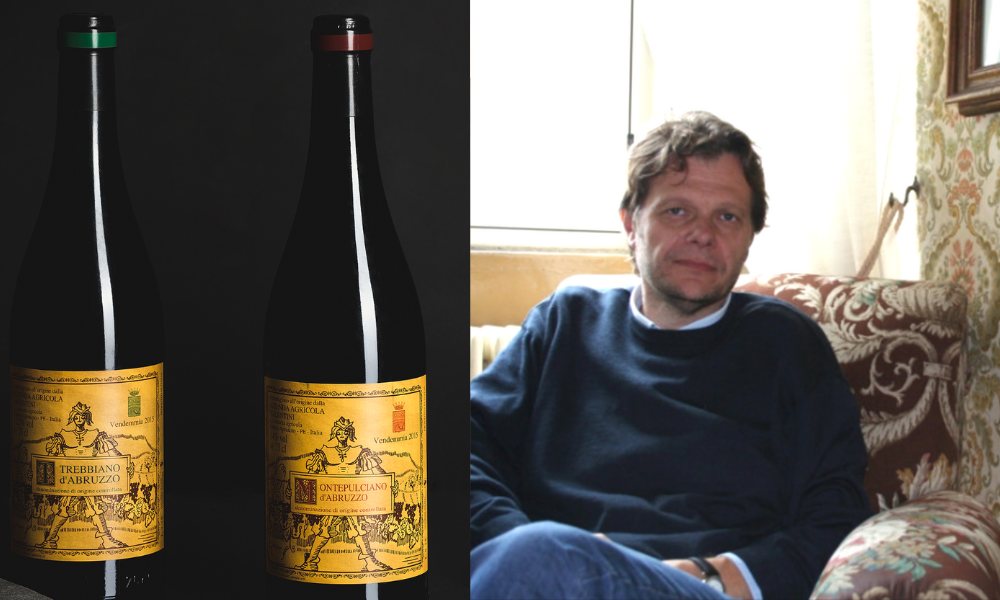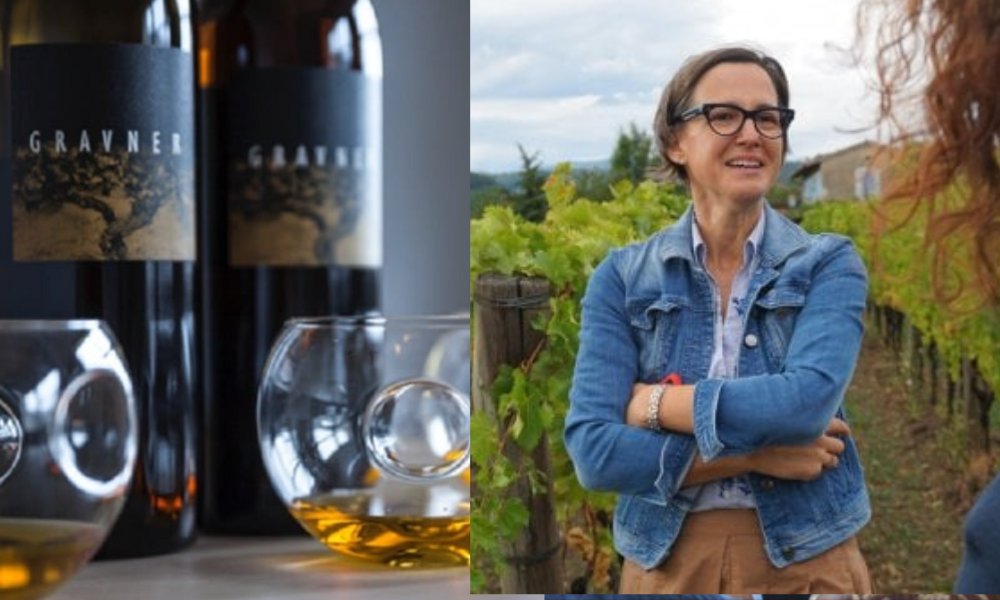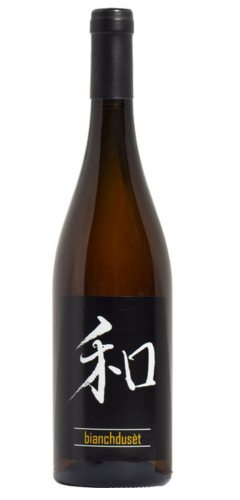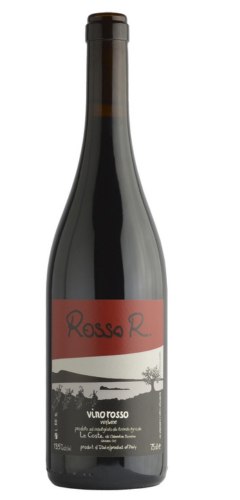
What are the best Italian natural wines? Are natural wines in Italy a trend or do they belong to tradition? Discover a brief overview of natural wines in Italy and then the list of the most iconic natural wines in Italy.
INDEX:
- Shipping Natural Wines from Italy
- Italian Natural Wines – Trend or Tradition?
- Best Italian Natural Wines
SHIPPING ITALIAN NATURAL WINES
Selected by Vino al Vino
(Natural Wine Shop in Florence)
ITALIAN NATURAL WINE SHIPPING PACKAGES
– Regular Selection (12 or 24 Bottles mixed)
-Premium Selection (12 or 24 Bottles mixed)
– Full Bodied Red Wine Selection (12 or 24 Bottles)
– Light Bodied Red & Rosé Selection (12 or 24 Bottles)
– Pét Nat & Sparkling Selection (12 or 24 Bottles)
– Orange Wines Selection (12 or 24 Bottles)
-White Wines Selection (12 or 24 Bottles)
SHIPPING ITALIAN NATURAL WINES PRICES
UNITED STATES
6 BOTTLES = €77
12 BOTTLES = €121
CANADA
6 BOTTLES = €121
12 BOTTLES = €176
SWITZERLAND
6 BOTTLES = €80
12 BOTTLES = €94
AUSTRALIA
6 BOTTLES = €101
12 BOTTLES = €148
ENGLAND
6 BOTTLES = €50
12 BOTTLES = €61
BE, DK, NL
6 BOTTLES = €26
12 BOTTLES = €42
NATURAL WINES IN ITALY – TREND OR TRADITION?

Natural wines encompass two fundamental aspects: the agronomic approach, which involves using organic or biodynamic methods to ensure the wines are free from pesticides and herbicides, and the enological aspect, characterized by a near-total rejection of oenological additives and the use of indigenous grape varieties and native yeasts.
By adhering to these practices, proponents of natural winemaking seek to position the wines as a healthier and eco-conscious choice, capturing the true essence of the terroir in a unique and authentic flavor profile.
It is worth noting that, as of now, there is no official legislation, at least within the European Union, providing an exact definition of “natural wine.” Consequently, this designation lacks certification from any accredited third-party organization.

Valentini, Italian natural wine symbol, considers the term “natural wine” misleading, as grape fermentation naturally produces vinegar. He prefers to describe his wine as artisanal.
Throughout Italy’s history, wine has been crafted in an artisanal manner for over two millennia, employing methods now associated with what is known as natural wine (Hand-harvesting of indigenous grapes, spontaneous fermentation, minimal use of oenological additives, white wines in contact with the skins, amphorae, ancestral method sparkling wines). The expression “natural wines” is a relatively recent concept, gaining popularity in the early 2000s to emphasize the difference between wines from large companies with industrial production and low-end mass production, which have become increasingly common in the market, and small companies that maintain an artisanal and traditional approach. However, it’s important to note that in Italy, the average vineyard size is very small, about 5 acres, (in California, the average size is 82 acres, and in Australia, it’s 120 acres). Furthermore, in Italy, 80% of the grapes are harvested manually, (compared to 80% of mechanical harvesting in the USA and 75% of mechanical harvesting in Australia).

Mateja Gravner stated: “Natural wine does not exist. There cannot be wine without human intervention. Wine does not come into existence on its own. However, it can be produced with minimal human intervention.”
The significant number of small family-owned vineyard farms in Italy naturally leads to an artisanal approach to winemaking, both in the vineyard (through sustainable agriculture) and in the cellar (using few or no additives). Therefore, in Italy, the distinction between natural wines and conventional wines is often not as clear-cut as in other countries, as many companies traditionally follow artisanal methods without explicitly promoting them with the keyword “natural wines,” even if they could fulfill all the criteria.
However, in the early 2000s, the movement of so-called “natural wine” in Italy, a term previously used only by a few virtuous but solitary producers, began to gain coherence and organization.
As a result, associations, fairs, distributions, and specialized wine shops started to proliferate, along with numerous books and movies that gained fame, such as the counterculture magazine “Porthos” (1999) by Sandro Sangiorgi and the documentary on the globalization of wine “Mondovino” (2004) by Jonathan Nossiter.
Over the decades, the “natural wine” movement has gained increasing vigor and popularity, bringing about a radical change in how wine is perceived, not only in terms of taste but also from an ethical and political perspective.
BEST ITALIAN NATURAL WINES – Recommended by Jean Marco Palmieri

Here is a list of the best Italian natural wines recommended by Jean Marco Palmieri.
Some of these are produced by iconic wineries that have made their mark in the history of natural wine in Italy, while others are emerging wineries that have gained great success in recent years.
SOLDERA

Soldera is a renowned winery located in Montalcino, Tuscany, with 23 hectares of vineyards. Founded by Gianfranco and Graziella, the estate’s philosophy combines tradition and innovation on a unique terroir. They produce the prestigious Brunello di Montalcino, with the first vintage dating back to 1982.
Gianfranco vinifies Sangiovese grapes in a biodynamic and organic manner, creating a perfect ecosystem for grape maturation. The winery’s dedication to natural winemaking and attention to detail results in elegant and age-worthy wines, exemplified by their Toscana Sangiovese “Case Basse.” Soldera is widely regarded as one of Italy’s top producers of natural wines, known for their classic style and refined elegance.
Region: Tuscany
GIUSEPPE RINALDI

Giuseppe Rinaldi, founded in 1890, is a renowned winery known for producing top-quality Barolo wines. With vineyards spanning over 10 hectares, including prestigious crus like Brunate, Cannubi-San Lorenzo, and Ravera, the estate follows traditional winemaking methods. Natural yeast fermentations, long macerations in wooden vats, and aging in large oak barrels result in classic and profound Piedmontese wines that age beautifully, reflecting the terroir.
After Giuseppe Rinaldi’s passing in 2018, his daughter Marta Rinaldi took over the estate, continuing the family’s deep connection to the land and its traditions. The winery’s approach emphasizes naturalness and environmental respect, keeping the essence of Langhe’s traditional philosophy alive. Indisputably, a leading producer of natural wines in Italy.
Region: Piedmont
BARTOLO MASCARELLO

The Bartolo Mascarello winery, currently led by Maria Teresa Mascarello, daughter of Bartolo, is a legendary name in the world of Barolo and Langhe wines.
The most iconic wine is Barolo, obtained from several different vineyards (Rué, San Lorenzo, and Cannubi in the municipality of Barolo, and Le Rocche in the municipality of La Morra) that come together in a single bottle, following tradition.
Spontaneous fermentations occur with indigenous yeasts in cement tanks. The winery also produces other prestigious wines, including Freisa, Dolcetto d’Alba, Barbera d’Alba, and Langhe Nebbiolo. It boasts 5 hectares of vineyards, mainly dedicated to Nebbiolo, and produces just under 15,000 bottles highly sought after by collectors worldwide. Certainly, one of Italy’s most esteemed natural wine producers.
Region: Piedmont
GRAVNER

Josko Gravner is considered the master of orange wines, who reintroduced and valorized the ancient use of terracotta amphorae and extended skin macerations. The winery is located in the small village of Oslavia, within the renowned territory of Collio Goriziano. In his youth, Josko experimented with barriques and modern technology, but later returned to the ancient and well-established techniques of Qvevri (big traditional georgian amphorae). The estate covers 32 hectares of land, with over 15 hectares dedicated to vineyards, surrounded by forests, meadows, and ponds populated by various animal species. Josko’s philosophy led him to restore the natural balance that intensive farming and monocultures have disrupted, with a focus on water, a fundamental element of life. The vineyard exclusively cultivates indigenous grape varieties, Ribolla Gialla and Pignolo, having replaced other varieties. Fermentations take place only in buried Georgian amphorae, using indigenous yeasts, and extended skin contact for several months for Ribolla. Without a shadow of a doubt, one of the finest natural wine producers in Italy.
Region: Collio Goriziano (Friuli Venezia Giulia)
VALENTINI

Valentini is a noble family winery residing in Loreto Aprutino, Abruzzo, since the 1600s. They have a vast estate where wine, oil, and grain have been produced for centuries. Edoardo, in the early 1900s, passionately focused on producing high-quality wines. Today, his son Francesco Paolo leads the winery with a deep love for his work and wines. They follow a natural winemaking approach, avoiding chemical interventions and selected yeasts, allowing Mother Nature to guide the process.
In 2012, their Trebbiano d’Abruzzo was acclaimed as the Best Wine in Italy, validating Francesco Paolo’s life philosophy. Valentini is celebrated as one of the best natural wine producers in Italy, with their wines symbolizing the Abruzzo winemaking renaissance, known for complexity, elegance, and age-worthiness.
Region: Abruzzo
EMIDIO PEPE

Emidio Pepe Winery, founded in 1964 by Emidio Pepe, is located in the hills of Torano, Abruzzo. With 15 hectares of vineyards, they focus on the two main Abruzzese grape varieties, Trebbiano, and Montepulciano. Emidio and his wife Rosa established the winery’s reputation for territorial expression and longevity. Today, their daughters Daniela and Sofia, along with granddaughter Chiara, carry on the family’s legacy.
The vineyard and cellar work avoids invasive products, relying on natural elements like copper crystals and biodynamic preparations. Emidio Pepe’s artisanal wines are vinified in cement and aged without the use of wooden barrels. The winery maintains impeccable production quality, consistently representing the charm and terroir of Abruzzo in each bottle. Undoubtedly, one of the top natural wine producers in Italy
Region: Abruzzo
BERA VITTORIO E FIGLI

The Bera family has engaged in viticulture within the Astesana hills of Canelli since 1758.
In 1964, Vittorio firmly embraced the transition to organic farming as a genuine life philosophy, a legacy continued by his children, Gianluigi and Alessandra.Today, this family-operated estate tends to ten hectares in Canelli’s Serramasio region, situated at the core of the classic and time-honored Moscato d’Asti production area.
Likewise, the cellar’s practices prioritize minimal interference to allow the wines to reflect their terroir. Utilization of chosen yeasts, enzymes, and various chemical or physical treatments is eschewed, yielding wines that epitomize territorial characteristics. The flagship is the potent yet refined Moscato d’Asti, complemented by limited yet exceptional creations of the Astesana region’s most classic and traditional wines. The estate also cultivates other native varietals including Arneis, Cortese, Favorita, Barbera, Dolcetto, and Grignolino. The estate encompasses 12 hectares of vineyards.
Region: Piedmont
STEFANO AMERIGHI

Stefano Amerighi – Based in Cortona in Tuscany, Stefano Amerighi is a talented producer known for his elegant and expressive wines, with a special emphasis on Syrah. Today, Stefano Amerighi stands as one of the most significant producers of natural wines among the new generation, and he has been one of the foremost advocates of the movement in Italy.
However, in recent years Stefano Amerighi has carved out for himself a position that could be defined as ecumenical, in an attempt to create a dialogue between the partly plastered and conservative world of wine institutions with the more radical and maximalist world of the so-called natural wine world. Undeniably one of the foremost creators of natural wines in Italy.
Region: Tuscany
ARIANNA OCCHIPINTI

Arianna Occhipinti – A young and talented Sicilian producer, Arianna Occhipinti specializes in local grape varieties of the area such as Frappato, Nero d’Avola and Zibibbo.
The winery follows a natural and artisanal approach to winemaking, producing wines of great balance and territorial expression.
Arianna’s commitment to biodynamic principles and hands-on work in the vineyard has gained her international recognition and admiration. Her wines are praised for their purity, vibrant fruit flavors, and sense of place. Indisputably, a leading producer of natural wines in Italy.
Region: Sicily
LINO MAGA

Lino Maga – An artisanal winemaker specializing in wines from Oltrepò Pavese in Lombardy, Lino Maga is known for its red wine ‘Barbacarlo’, obtained by a blend of rare local grape varieties (Croatina 50%, Uva Rara 30%, Ughetta 20%).
The winery embraces a traditional artisanal approach to winemaking, eschewing the use of added yeasts or controlled temperatures.
The result is wines that might be considered unpredictable, yet they remain consistently unique and exceptional. These creations are robust, genuine, and crafted with an artisanal touch, reflecting a rich history that adds to their allure.
Region: Lombardy
OASI DEGLI ANGELI

Situated in the Marche region, Oasi degli Angeli is a biodynamic winery founded in 1997 by Marco Casolanetti and Eleonora Rossi, dedicated to the production of artisanal red wines. The winery is particularly renowned for its iconic wine ‘Kurni,’ obtained from 100% Montepulciano grapes grown in Alberello vines.
The vinification process in the cellar involves spontaneous fermentation, activated solely by indigenous yeasts, carried out partly in steel and partly in large barrels, followed by long aging of 20 months in first-use barriques.
Definitely counted among the top natural wine producers in Italy
Region: Marche
DETTORI

Dettori is an Italian winery founded in 1980 by Alessandro Dettori, focusing on territorial wines inspired by biodynamic principles. They cultivate 24 hectares of indigenous grape varieties like Cannonau, Vermentino, Pascale, Moscato, and Monica. Embracing a traditional approach, their artisanal wines celebrate the territory’s essence, captivating with intriguing character.
Noteworthy wines include Chimbanta Romangia Rosso, Dettori Bianco, and Tenores Romangia Rosso, beautifully expressing the strength of the land.
With an annual production of 40,000 bottles, Dettori offers exceptional wines for enthusiasts to discover and appreciate.
Region: Sardegna
RADIKON

Radikon, founded by Stanko Radikon in 1980 and led now by his son Saša Radikon, is a renowned pioneer in winemaking. They cultivate indigenous grape varieties on 18 hectares of vineyards in Oslavia, Friuli.
Embracing natural methods, they avoid chemicals and sulfites, producing exceptional orange wines through extended macerations and wood aging.
The wines showcase robustness, acidity, depth, and richness, preserving Collio Gorizia’s essence and orange wine legacy. Certainly, one of the most esteemed italian natural wine producers.
Region: Collio Goriziano (Friuli Venezia Giulia)
ANGIOLINO MAULE – LA BIANCARA

Considered a pioneer of natural wines in Veneto (the region of Venice), La Biancara is an iconic Italian natural winery founded in 1988 by Angiolino Maule. It is particularly known for its imaginative orange wines obtained from Garganega and Trebbiano grapes.
Initially, Angiolino Maule was perceived as eccentric due to his extreme ideologies. However, he has now become a prominent figure in the world of traditional winemaking. Today, he holds the esteemed position of president and founder of the Vinnatur association, which boasts a membership of over 150 artisan Italian natural wine producers. His journey from being seen as “crazy” to becoming a respected leader underscores his unwavering commitment to the age-old practices of winemaking. La Biancara is undeniably one of Italy’s premier natural wine producers.
Region: Veneto
LA STOPPA

La Stoppa – Based in Emilia-Romagna, is an iconic Italian natural winery run by the Pantaleoni family since 1973, now represented by Elena Pantaleoni.
It is particularly renowned for its orange wine “Ageno,” made from Malvasia di Candia grapes that undergo fermentation with 30 days of maceration on the skins, using only indigenous yeasts, without clarification or filtration, and without the addition of sulfur dioxide.
Without a doubt, one of the finest natural wine producers in Italy.
Region: Emilia Romagna
FRANK CORNELLISSEN

Franzk Cornellissen – A Dutch winemaker who moved to Etna, in Sicily, Franzk Cornellissen is known for his extremely natural and authentic winemaking philosophy. Frank Cornelissen’s winery is located in Solicchiata, on the northern slopes of Mount Etna. His vineyards, mostly cultivated using the alberello method, are scattered like precious jewels along the entire northern side of the volcano, ranging from 650 to 980 meters in altitude.
In addition to renowned Etna vines like Nerello Mascalese and Carricante, Frank also utilizes forgotten indigenous varieties like Minnella Bianca or Nera, Grecanico, and Francisi. The vinification follows ancient traditions, with the use of terracotta jars buried in the lava stone, without any additives or sulfur dioxide. Without a doubt, among the finest makers of natural wines in Italy.
Region: Sicily
GIOTTO BINI

Giotto Bini is a Pantelleria winery founded in the late 1990s by Gabrio Bini, an architect enchanted by the island’s atmosphere and terroir. Today, his son Giotto continues the tradition. Their 8-hectare vineyard on volcanic soil, 350 meters above sea level, uses the alberello method to withstand the wind.
Following eco-friendly practices, the winery allows nature’s rhythms to guide the winemaking process. Native yeasts ferment the wines in amphorae buried outdoors, with no clarifications, filtrations, sulfites, or chemicals added. The result is authentic, complex wines with harmonious aromas and mineral sensations, best experienced through the senses. Undoubtedly, one of the top natural wine producers in Italy.
Region: Sicily
ELISABETTA FORADORI

Elisabetta Foradori, known as ‘the lady of Teroldego,’ is a highly influential figure in the Italian wine industry. She revitalized Teroldego and championed other native Trentino grapes like Nosiola and Manzoni Bianco. Taking charge of the family vineyards in 1984, Elisabetta skillfully combines passion and expertise, making her a crucial reference for Trentino winemakers and enthusiasts. Elisabetta follows biodynamic principles in her vineyards, employing high-density trellised systems. In the cellar, amphora vinifications with natural yeasts exemplify her philosophy of preserving the grape’s sincerity and expressing its origin. The Foradori winery covers 28 hectares of vineyards. Without contest, among the best creators of natural wines in Italy.
Region: Sicily
LE COSTE

Le Boncie – Run by Giovanna Morganti, is a small Tuscan winery located in Castelnuovo Berardenga. Le Boncie is known for its wine “Le Trame,” obtained from local grapes such as Colorino, Foglia Tonda, Mammolo, and Sangiovese. The winery distinguishes itself by practicing non-interventional methods both in the field and in the cellar, in the name of natural agriculture inspired by the principles of biodynamics.
In the cellar, the vinification is carried out in a very traditional manner, with spontaneous fermentations using indigenous yeasts to preserve the richness and life of the vineyard. This process takes place in small open vats, without temperature control, and with relatively short macerations. Without a doubt, among the finest makers of natural wines in Italy.
Region: Lazio
LUIGI TECCE

Located in Campania, Luigi Tecce Winery founded in 1997 is a small winery (5 hectares) known for its powerful Taurasi wines. The winery adopts a traditional approach to winemaking, with great dedication to the territory and local winemaking traditions. Currently, the old family vineyards are divided into small plots located in Paternopoli, one of the most important areas for Taurasi. This region stands out not only for its altitude ranging from 500 to 600 meters. Luigi is an extraordinary character who thrives on going against the tide. He shuns the label of a conventional winemaker and instead, seeks advice solely from his friend Vincenzo Mercuri. Without contest, among the best creators of natural wines in Italy
Region: Campania
What are the best Italian natural wines ?

What are the best natural wines in Italy? Choosing is a difficult undertaking, which in any case is inevitably subject to the limits of a subjective opinion, which as such, by definition, is deficient and arbitrary.
We have simply compiled our own list of favorite interpretations according to our evaluations. However, it remains essential to underline that wine is not born to be prestigious, exhibited, or flaunted.
But to get excited and be shared in a genuine way with the people we love, bonding to contingent situations and unrepeatable and intimate moments of our lives.
Therefore, we invite you to visit wineries and get to know the producers who produce wines in their uniqueness, so that you can independently discover and choose the wine that can be counted among your personal favorite wines for you. If you have had the patience to read this far, I thank you for your attention, but now is the time to fill your glasses and cut off distant hopes, and therefore:
Cheers, Salute, Santé





